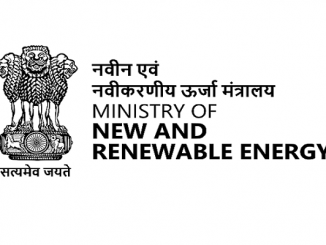
Oct 06: NPCI International Payments Limited (NIPL), a wholly-owned subsidiary of the National Payments Corporation of India (NPCI), has entered into a strategic partnership agreement with Al Etihad Payments (AEP) for Domestic Card Scheme (DCS) Implementation in UAE. AEP is an indirect subsidiary of the Central Bank of UAE (CBUAE). As per the agreement, NIPL and AEP will work together to build, implement, and operationalize UAE’s national domestic card scheme. The DCS will aim to facilitate the growth of e-commerce and digital transactions in the UAE, bolster financial inclusion, support the UAE’s digitization agenda, increase alternate payment options, reduce the cost of payments, and enhance the UAE’s competitiveness and position as a global payments leader. The partnership aligns perfectly with NIPL’s mission to offer its knowledge and expertise to assist other countries in establishing their own cost-efficient, and secure payment systems.
The DCS solution is based on the principles of sovereignty, speed to market, innovation, digitization, and strategic independence. The DCS solution provided by NIPL consists of a RuPay stack and value-added services like fraud monitoring services and analytics. NIPL will also assist AEP in formulating the operating regulations for their domestic card scheme.
RuPay is an indigenous, highly secure, and widely accepted card payment network in India. RuPay cards have debit, credit, and prepaid propositions. More than 750 Million RuPay cards are in circulation as of date. RuPay cards make up more than 60% of total cards issued in India, with every second Indian having a RuPay card now. These cards are issued through the entire banking spectrum, including public sector, private, and small banks.
India’s world-renowned Digital Public Infrastructure (DPI) is driving massive transformation in the payment space. DPI framework includes digital identity, digital payments, and digital data exchange layers – a combination of these three is the force behind the fintech revolution in India. Simply speaking, in India, nearly every adult has access to banking services, a way to remotely authenticate themselves (through Aadhar), and access to the internet through efficient and affordable mobile connectivity.
A combination of these factors makes India the third largest fintech ecosystem in the world, with rapidly surfacing unicorns. India has witnessed an exponential growth of 367% in customers participating in digital transactions in the last five years, with an active customer base of more than 340 million.
Disclaimer: We donot claim that the images used as part of the news published are always owned by us. From time to time, we use images sourced as part of news or any related images or representations. Kindly take a look at our image usage policy on how we select the image that are used as part of the news.


